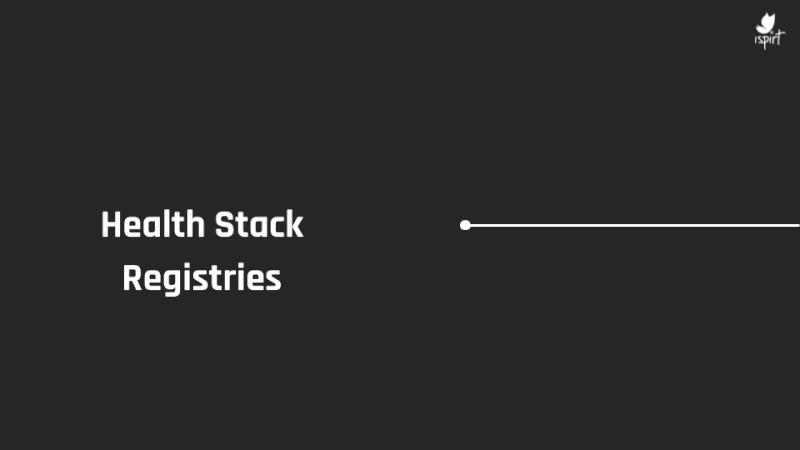iSPIRT hosted the second open house session on the National Health Stack (NHS).
In this session, our health stack volunteers dived deeper into the Personal Health Record (PHR) system and also covered the concept of the Electronic Doctor Registry.
In the first part of the session, our volunteer Siddharth Shetty answered technical questions pertaining to the PHR system. These questions, which were all submitted by the community, covered topics ranging from blockchains and zero-knowledge proofs to assisted consent flow for low tech-savvy users. A link to a recording of the session can be found at the end of this post.
In the second half of the session, our volunteer Kiran Anandampillai explained the concept of the doctor registry. The electronic registry system is a mechanism for managing master data about different entities in the healthcare ecosystem. Although some of these entities do appear in existing databases, these legacy systems are often incomplete, outdated, and seldom accessible via APIs. In contrast, the registries in the NHS are intended to capture trusted, non-repudiable data and enable self-maintainability. These registries will also have open APIs and will allow for secure authentication and data sharing.
In the context of doctors, the electronic doctor registry can be used to:
- Prove their identity and credentials as doctors
- Electronically sign documents such as prescriptions, insurance claims, operating theatre notes, and more
- Streamline workflows such as joining or telehealth application or registering for CME points (Continuing Medical Education points necessary for renewing a doctor’s license)
A recording of the entire session, including a breakdown of the design principles, APIs, and timelines behind the doctor registry, can be found below.
Inquisitive readers are also encouraged to submit their technical questions around the NHS to community@ispirt.in.
We will be answering those questions at the start of next week’s open house session, which will begin at 11:30 am on Saturday, 6th June. An invite to that session will be sent out to all participants who sign up at this link: https:// www.bit.ly/NHS-OHD
Although these sessions have so far been focusing on technical features of the NHS, the business and design aspects are also crucially important and will be covered in short order.
The blog post is authored by our volunteer Aaryaman Vir and he can be reached at aaryaman.vir@gmail.com.


